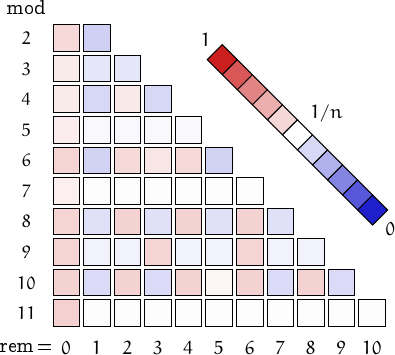The first 600 wasteful numbers :
4, 6, 8, 9, 12, 18, 20, 22, 24, 26, 28, 30, 33, 34, 36, 38, 39, 40, 42, 44, 45, 46, 48, 50, 51, 52, 54, 55, 56, 57, 58, 60, 62, 63, 65, 66, 68, 69, 70, 72, 74, 75, 76, 77, 78, 80, 82, 84, 85, 86, 87, 88, 90, 91, 92, 93, 94, 95, 96, 98, 99, 100, 102, 104, 108, 110, 114, 116, 117, 120, 124, 126, 130, 132, 136, 138, 140, 143, 144, 148, 150, 152, 153, 154, 156, 164, 165, 168, 170, 171, 172, 174, 176, 180, 182, 184, 186, 187, 188, 190, 195, 196, 198, 200, 202, 204, 206, 207, 208, 209, 210, 212, 214, 216, 218, 220, 221, 222, 225, 226, 228, 230, 231, 232, 234, 236, 238, 240, 242, 244, 246, 247, 248, 252, 253, 254, 255, 258, 260, 261, 262, 264, 266, 268, 270, 272, 273, 274, 275, 276, 278, 279, 280, 282, 284, 285, 286, 288, 290, 292, 294, 296, 297, 298, 299, 300, 302, 303, 304, 306, 308, 309, 310, 312, 314, 315, 316, 318, 319, 321, 322, 323, 324, 325, 326, 327, 328, 330, 332, 333, 334, 336, 338, 339, 340, 341, 342, 344, 345, 346, 348, 350, 351, 352, 354, 356, 357, 358, 360, 362, 363, 364, 366, 368, 369, 370, 372, 374, 376, 377, 378, 380, 381, 382, 385, 386, 387, 388, 390, 391, 392, 393, 394, 396, 398, 399, 400, 402, 403, 404, 406, 407, 408, 410, 411, 412, 414, 416, 417, 418, 420, 422, 423, 424, 425, 426, 428, 429, 430, 432, 434, 435, 436, 437, 438, 440, 441, 442, 444, 446, 447, 450, 451, 452, 453, 454, 455, 456, 458, 459, 460, 462, 464, 465, 466, 468, 470, 471, 472, 473, 474, 475, 476, 477, 478, 480, 481, 482, 483, 484, 488, 489, 490, 492, 493, 494, 495, 496, 498, 500, 501, 502, 504, 505, 506, 507, 508, 510, 513, 514, 515, 516, 517, 518, 519, 520, 522, 524, 525, 526, 527, 528, 530, 531, 532, 533, 534, 535, 536, 537, 538, 539, 540, 542, 543, 544, 545, 546, 548, 549, 550, 551, 552, 554, 555, 556, 558, 559, 560, 561, 562, 564, 565, 566, 568, 570, 572, 573, 574, 575, 576, 578, 579, 580, 582, 583, 584, 585, 586, 588, 589, 590, 591, 592, 594, 595, 596, 597, 598, 600, 602, 603, 604, 605, 606, 608, 609, 610, 611, 612, 614, 615, 616, 618, 620, 621, 622, 624, 626, 627, 628, 629, 630, 632, 633, 634, 635, 636, 637, 638, 639, 642, 644, 645, 646, 648, 649, 650, 651, 652, 654, 655, 656, 657, 658, 660, 662, 663, 664, 665, 666, 667, 668, 669, 670, 671, 672, 674, 675, 676, 678, 680, 681, 682, 684, 685, 687, 688, 689, 690, 692, 693, 694, 695, 696, 697, 698, 699, 700, 702, 703, 704, 705, 706, 707, 708, 710, 711, 712, 713, 714, 715, 716, 717, 718, 720, 721, 722, 723, 724, 725, 726, 728, 730, 731, 732, 734, 735, 736, 737, 738, 740, 741, 742, 744, 745, 746, 747, 748, 749, 750, 752, 753, 754, 755, 756, 758, 759, 760, 762, 763, 764, 765, 766, 767, 770, 771, 772, 774, 775, 776, 777, 778, 779, 780, 781, 782, 783, 784, 785, 786, 788, 789, 790, 791, 792, 793, 794, 795, 796, 798, 799, 800, 801, 802, 803, 804, 805, 806, 807, 808, 810, 812, 813, 814, 815, 816, 817, 818, 819, 820, 822, 824, 825, 826, 828, 830, 831, 832, 833, 834, 835, 836, 837, 838, 840, 842, 843, 844, 845, 846, 847, 848, 849, 850, 851, 852, 854, 855, 856.
Distribution of the remainders when the numbers in this family are divided by n=2, 3,..., 11. (I took into account 8498885 values, from 4 to 9999999).
| n\r | 0 | 1 | |||||||||
|---|---|---|---|---|---|---|---|---|---|---|---|
| 2 | 4854537 | 3644348 | 2 | ||||||||
| 3 | 3185666 | 2656583 | 2656636 | 3 | |||||||
| 4 | 2421887 | 1822134 | 2432650 | 1822214 | 4 | ||||||
| 5 | 1843797 | 1663756 | 1663777 | 1663712 | 1663843 | 5 | |||||
| 6 | 1648311 | 1053402 | 1603045 | 1537355 | 1603181 | 1053591 | 6 | ||||
| 7 | 1264668 | 1205736 | 1205639 | 1205684 | 1205650 | 1205712 | 1205796 | 7 | |||
| 8 | 1174133 | 910989 | 1216275 | 911014 | 1247754 | 911145 | 1216375 | 911200 | 8 | ||
| 9 | 1059131 | 885492 | 885492 | 1063246 | 885499 | 885607 | 1063289 | 885592 | 885537 | 9 | |
| 10 | 984146 | 696121 | 967569 | 696155 | 967630 | 859651 | 967635 | 696208 | 967557 | 696213 | 10 |
| 11 | 901825 | 759670 | 759669 | 759664 | 759782 | 759696 | 759730 | 759627 | 759670 | 759755 | 759797 |
A pictorial representation of the table above

Imagine to divide the members of this family by a number n and compute the remainders. Should they be uniformly distributed, each remainder from 0 to n-1 would be obtained in about (1/n)-th of the cases. This outcome is represented by a white square. Reddish (resp. bluish) squares represent remainders which appear more (resp. less) frequently than 1/n.
e-mail: info -at- numbersaplenty.com • Privacy notice • engine limits